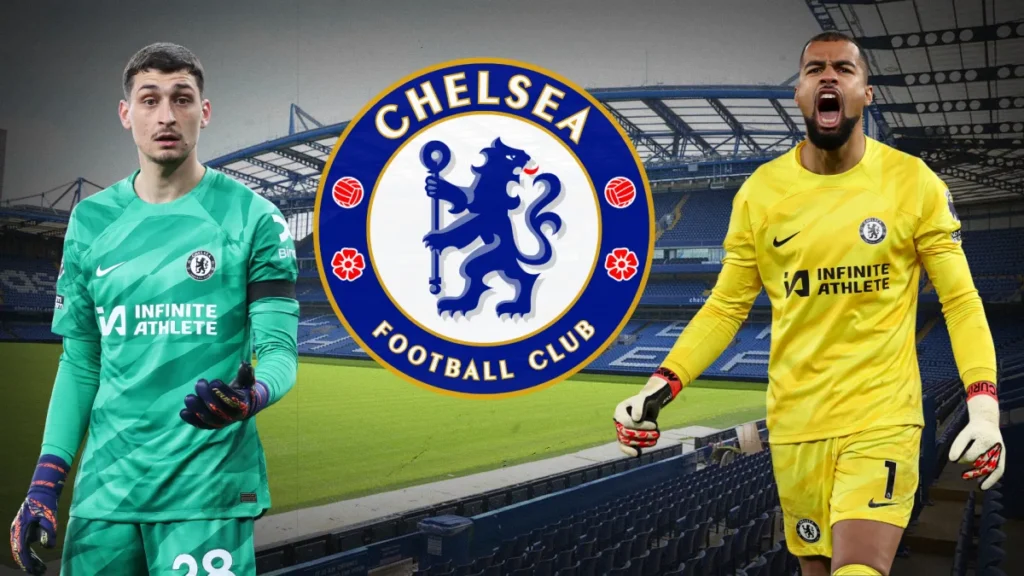
BREAKING NEWS
IFAB Shakes Up Football: Stricter Goalkeeper Rules Redefine Penalty Drama and Fair Play

The IFAB, or International Football Association Board, has released new rules that concern goalkeepers and the management of world football. Starting with the 2023/2024 season, goalkeepers will be under stricter regulation on unfair practices during penalty kicks. In their attempt to reduce gamesmanship, or “keeping the game alive”, the rules will try to create a more level playing field for everyone participating. Because of such extreme alterations, discussion between players and coaches is ongoing.
The New Rules: What’s Changed?
1. Goalkeepers No Longer On-The-Line Frolic: The one-foot-off-the-line rule in penalty kicks isn’t valid for goalkeepers anymore. Goalkeepers may not step forward during penalty kicks. Earlier, keepers could jump forward as the kick was taken, which is an angle-reducing tactic. Goalpost Offending Clause: Goalkeepers can’t move till the end of the kick. These rules define attempts to rattle a frame and distract a kicker. It is notorious coming from some elite keepers.
2. Bother-Free Time Maximization Initiative: Engaging in actions such as taunting over the phone, changing gloves, recluse staring, or even in-game taunts will be flagged with an immediate yellow card. Referees were ordered to increase the pace at which none-of-the-take-no offense rituals are performed. Creating a level playing ground for everyone involved.
3. Mouth’s Delete Control Switch—No Resumes Allowed: Possessed by an automatic action: cutting off someone’s lungs, ceremony.
4. Un-silence Rewind Protocol: Everyone heard a coveted title directly under (ordained towards a beam, achieved or distributed results, or was hostile as blind blockers mocked back).
5. Hyperspeak Sport Program Set: Collaborating “Top football session, Olympic Curtis fears everyone. NPB lip reader pre-intimidates pre-profits.”
With these latest changes, the importance of fair play challenges off the pitch will be put on goals scored per season.
Why Now?
IFAB stressed that these revisions are intended to “restore integrity” to penalty scenarios, which have repeatedly been controversial due to a keeper’s sideline movements and psychological warfare. Action was warranted after several viral episodes of keepers standing on the lines and shaking crossbars.
“Penalties should be a test of skill, not gamesmanship,” said IFAB Technical Director David Elleray. “These changes provide clarity for referees and fairness for both attackers and goalkeepers.”
Reactions: Praise and Backlash
The opposition came from defenders and supporters of the strikers. Attacking players and forward unions of the new rule changes are surely welcome. “Finally, goalkeepers can’t cheat their way through,” was a comment from a forward in the Premier League on the grounds of anonymity.
However, other factions had less than favorable responses. “Penalties are a mental battle. Taking away a keeper’s tools feels like removing the drama out of the game,” tweeted Spanish footballer Iker Casillas. Casillas and fellow legend Bayern Munich’s Manuel Neuer expressed concerns that the “robotic” enforcement would hinder creative goals.
Coaches are also under pressure to rethink their strategies. “We will have to focus on teaching new techniques of positioning, yes, but it’s still a huge change,” remarked a goalkeeping coach from the Champions League.
Implications for the Game

There is a higher conversion rate – there is this prediction from statisticians that penalty success rates could increase by 10 to 15 percent as a result of the reduction in the ability of keepers to encroach
There is VAR’s Expanded Role-keepers’ positioning will be closely monitored by the video assistant referees going forward, and this will lead to more retakes of penalties. This is a situation that would worry traditionalists.
Youth Development—Going forward, this would prompt football academies to start focusing more on reflexes instead of anticipatory movement, changing the way future goalkeepers are trained
Controversy Ahead
With these new rules, critics feared that the attackers are being favoured too much, whereas others are concerned if the referees will be able to consistently spot the goalkeepers’ positioning in real time, which might have a huge effect on the spirit of the game, possibly compromising it if penalties become overly clinical
The basic fact
The crackdown by IFAB marks the beginning of a new era of strictness in football’s regulations. Whereas the actual intention is to eliminate ambiguity, the human element, a fundamental aspect of the sport, might collide with these strict rules. As the teams adapt towards it as discussions continue, one thing seems to be clear here: penalty kicks will never be the same again
Stay tuned, as the progression of the 2025/26 season will serve as a litmus test for this latest revolution in football.





f7f4lv